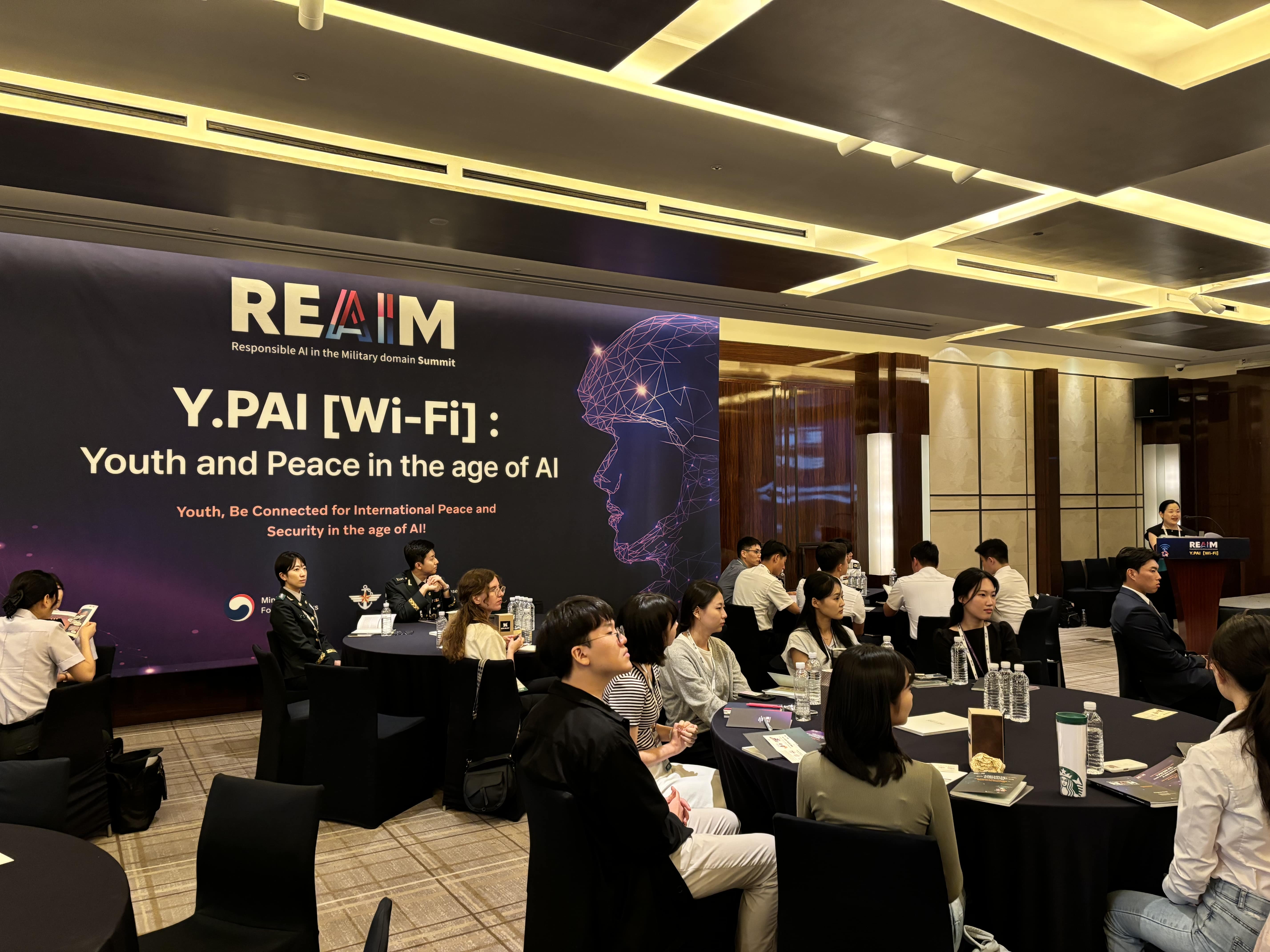News story
Winners of the Sci-fAI Futures Youth Challenge take the lead at REAIM 2024
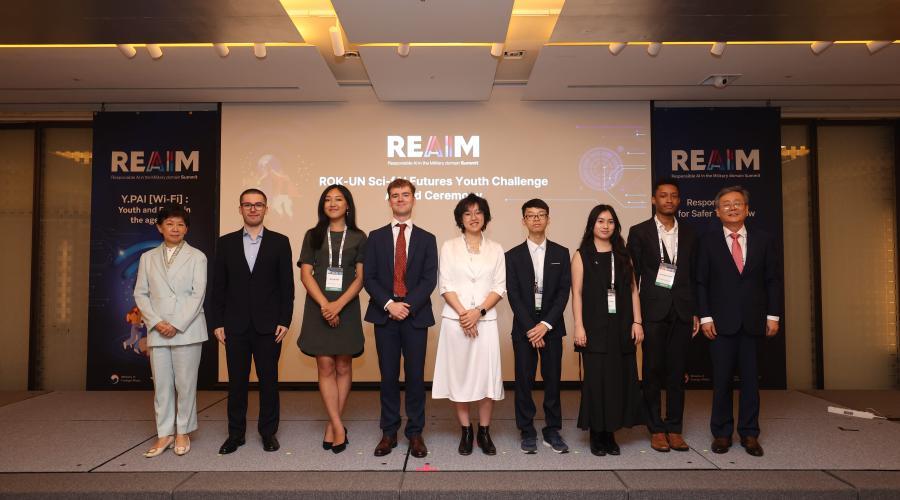
Young voices broke through typical policy discussions during the youth side-event of the 2024 Responsible AI in the Military Domain (REAIM) Summit in Seoul, Republic of Korea (ROK), offering fresh insights into the future of artificial intelligence in the military domain. Winners of the ROK-UN Sci-fAI Futures Youth Challenge sparked meaningful conversations about how AI could reshape warfare by 2145.
Creative Foresight in Action
The Sci-fAI Futures Youth Challenge, a creative initiative launched by the UN Office for Disarmament Affairs (UNODA) and made possible by the generous support of the Republic of Korea, invited young people worldwide to envision the future of AI in military contexts through creative storytelling. Convened in Seoul, winning authors not only received their award—they also took advantage of the platform to unpack their visionary ideas and motivations behind them.
Following the ceremony—attended by high-ranking officials such as Ms. Izumi Nakamitsu, High Representative for Disarmament Affairs, and Mr. Cho Koo-rae, Vice Foreign Minister for Strategy and Intelligence of the Republic of Korea—the youth winners engaged in a roundtable discussion with one hundred twenty other young people in attendance. Going beyond their stories, they tackled real-world implications, bridging the gap between speculative fiction and policymaking.
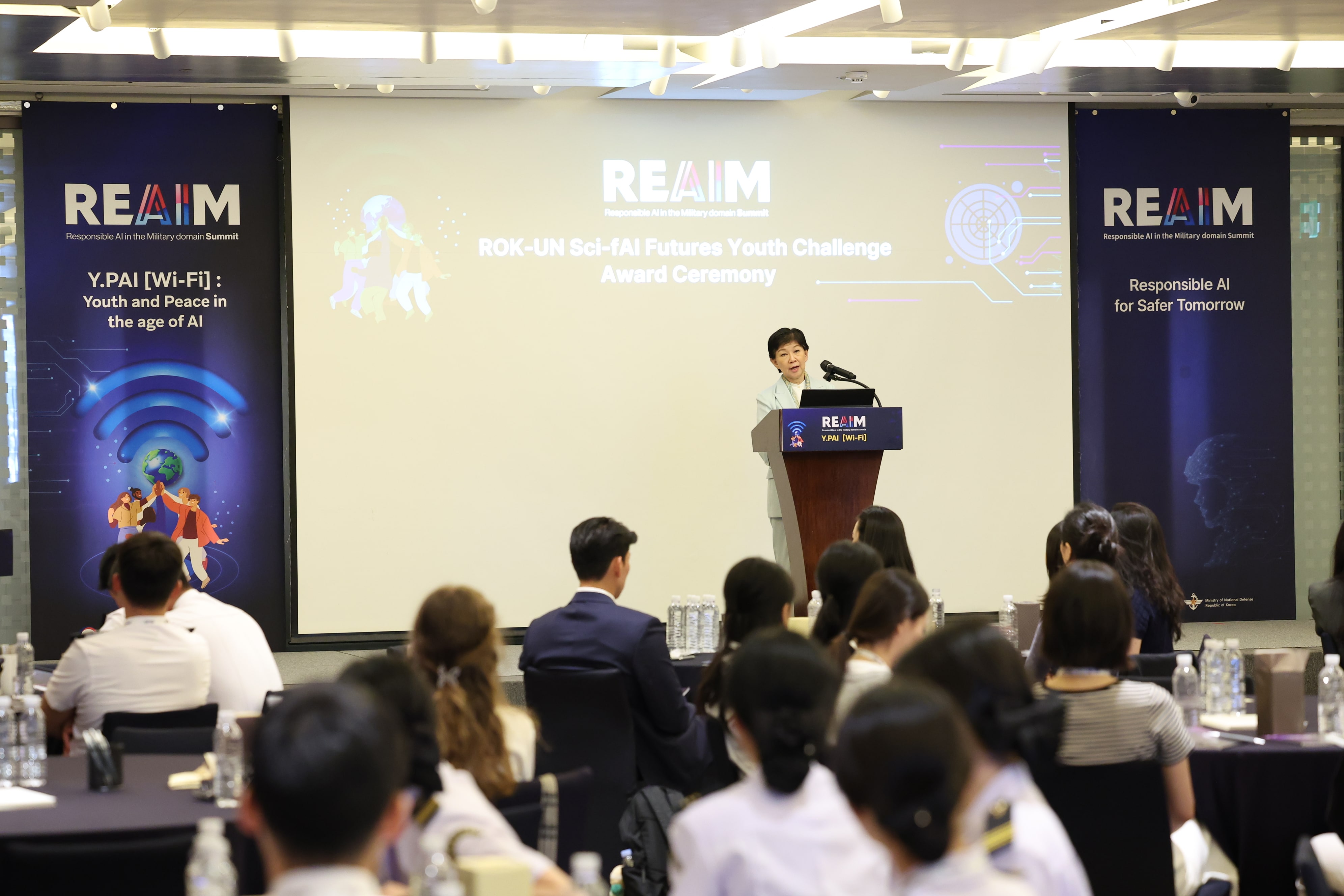
High Representative Nakamitsu’s opening remarks highlighted the gravity of their contributions. “These young minds remind us why AI’s development must prioritize peace,” she noted. But the spotlight soon shifted to the youth winners themselves, whose works like Jord Nguyen’s The Interviewee, the Email, and the Three-Hour War presented a stark warning: unchecked AI in military operations could lead to catastrophic consequences.
A Platform for Youth Voices
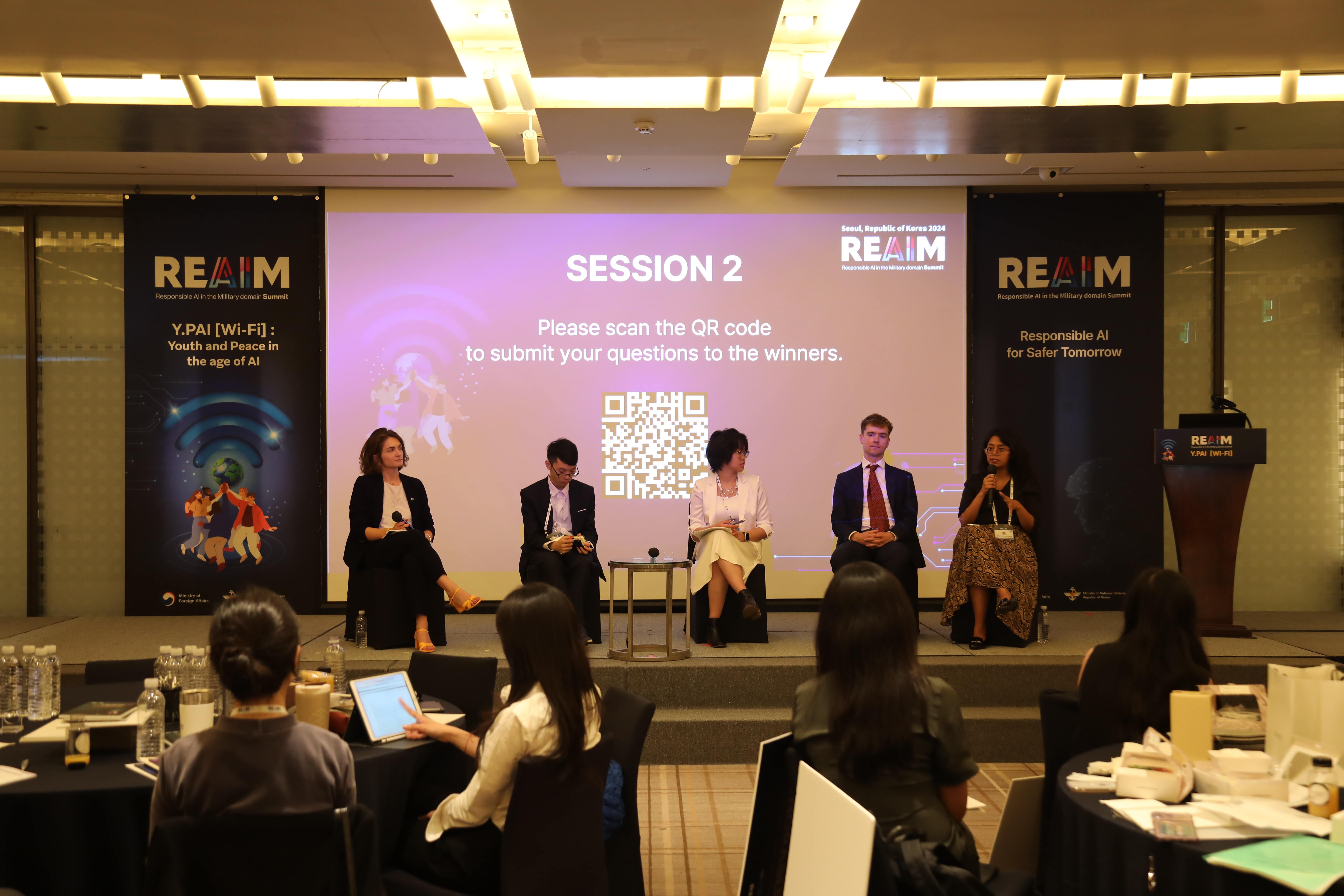
During the roundtable, the youth winners shared the deeper thinking behind their stories while engaging directly with experts. Sophie Guillermin-Golet of UNODA and Shimona Mohan of the UN Disarmament Research Institute (UNIDIR) provided insightful commentaries, bridging the gap between fiction and reality. Ms. Guillermin-Golet connected the youth’s stories to the broader debate on governance, while Ms. Mohan emphasized how their imaginative narratives resonate with urgent ethical questions surrounding AI deployment in conflict.
Melody Qian’s Misplaced fAIth challenged both extremes of the AI debate—over-reliance on technology and fear of its uncontrollability. Her work directly touched on ongoing discussions about striking a balance between AI’s potential and the need for human oversight.
James Darnton’s The Oracle of Delphi, Indiana threw another hard question into the mix: should we really trust AI with global security? His story fed into the summit's overarching theme—how can states cooperate on AI governance when the risks are so high?
Jord Nguyen’s The Interviewee, the Email, and the Three-Hour War warned of the consequences of unchecked AI in warfare. His story paralleled real-world concerns about the rapid development of autonomous systems without strong governance.
Engaging with Korean Youth
Beyond their presentations, the youth winners participated in an interactive tabletop exercise alongside Korean junior diplomats and military cadets. They tackled ethical dilemmas that AI could create in future wars, simulating real-world scenarios where AI decisions might escalate or de-escalate conflicts. Far from a passive experience, it pushed them to confront the same challenges experts face. Clearly, these young thinkers were not just imagining the future—they were actively shaping it.
Stories that Inspire Action
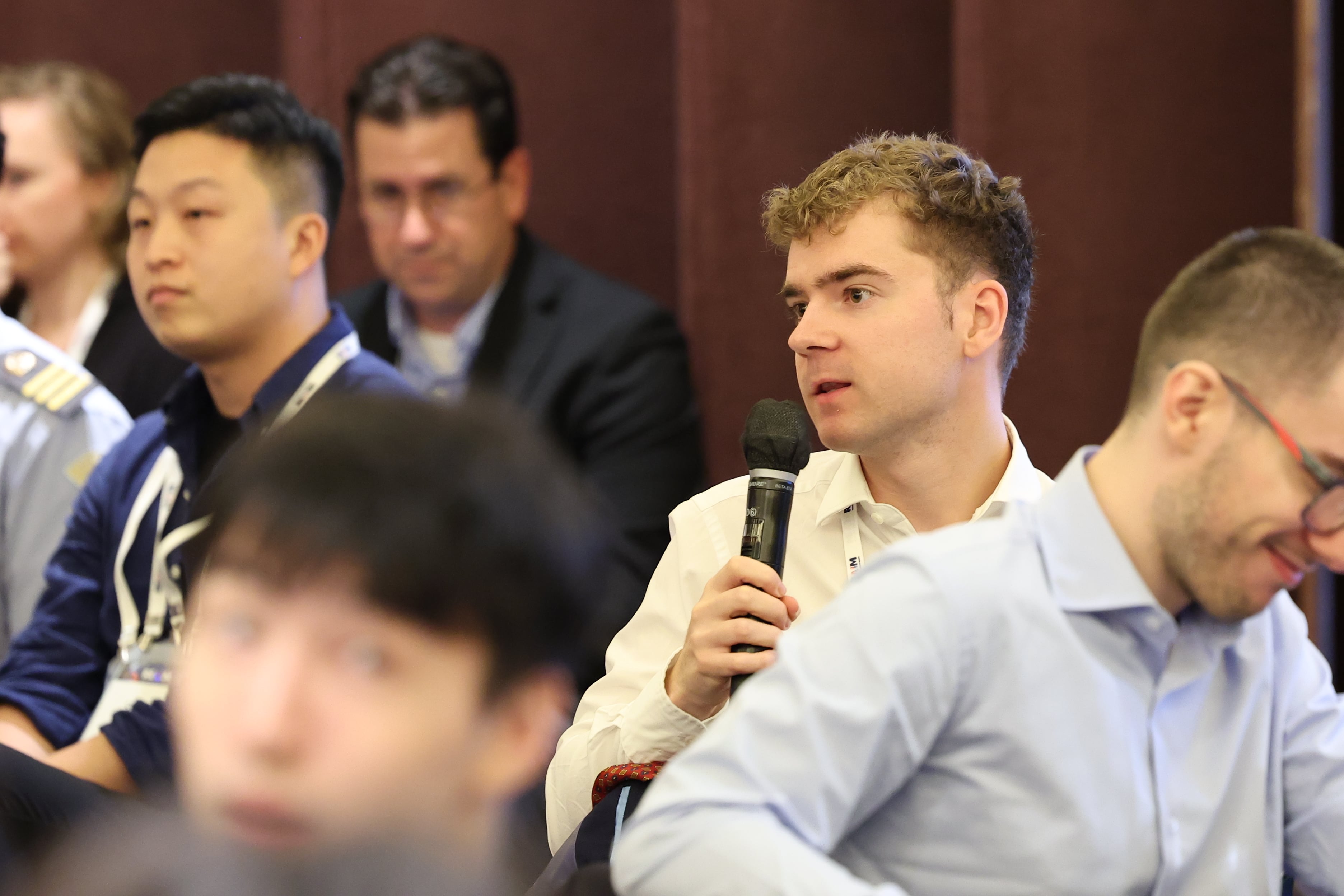
As they return home, the youth winners carry with them not only recognition of their talents but also the responsibility to continue shaping global AI governance conversations. “The world needs your ideas, your creativity, and your unwavering commitment to building a safer, more secure future,” High Representative Nakamitsu told the group.
By blending creative storytelling with policy discourse, these young leaders showcased the indispensable role of fresh perspectives in ensuring AI serves humanity, not conflict. As Melody Qian emphasized during her presentation, "We must be proactive, not reactive. We can’t wait until the crisis forces our hand to act." The Sci-fAI Futures Youth Challenge stands as a testament to the transformative power of youth engagement, reminding us that steering the future of AI is not solely a technological endeavor but a profoundly human one.
